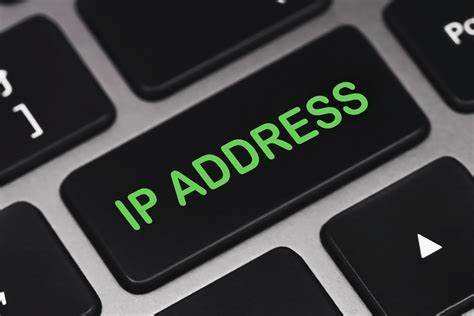
In today’s digital era, where transmission and connections appear mainly online, knowing someone’s IP address can sometimes be like having a virtual key to their digital identity. Whether you’re troubleshooting network problems, defying cyber threats, or simply interested in the sources of a statement, understanding how to find someone’s IP address can be a helpful skill.
However, it’s essential to approach this knowledge responsibly and ethically, appreciating privacy and legal limitations. In this manual, we’ll explore the basics of discovering someone’s IP address and the moral matters covering it.
What is an IP Address?
An IP (Internet Protocol) address is an individual numerical identification provided to every device attached to a computer network that communicates utilizing the Internet Protocol. Think of it as a digital address specifying where a particular gadget is online.
IP addresses come in two primary versions: IPv4 (32-bit) and IPv6 (128-bit), with IPv4 existing the most generally employed. These orations are the basis of Internet communication, allowing devices to exchange data packages and demonstrate relationships across the global network.
IPv4 addresses comprise four sets of digits separated by periods, but IPv6 addresses use a hexadecimal format, permitting a particularly more substantial number of specific identities. Despite transitioning to IPv6 to accommodate the growing number of internet-connected devices, IPv4 remains prevalent due to its general adoption and similarity.

Legal and Ethical Considerations
Before delving into finding someone’s IP address, it’s essential to understand the legal and ethical imports. In most authorities, accessing someone’s IP address without their permission can violate privacy laws and include unauthorized access to a computer system, which is illegal.
Therefore, it’s essential to have legitimate explanations to receive these details and ensure that your activities yield with applicable laws and restrictions.
Additionally, even when there are legitimate reasons for tracing an IP address, such as network troubleshooting or cybersecurity investigations, it’s essential to respect individuals’ privacy requests and use ethical and lawful techniques. These considerations help maintain integrity and trust in online interactions while avoiding legal consequences.

Legitimate Reasons for Finding an IP Address
While getting someone’s IP address without proper permission is corrupt and potentially illegal, there are fair procedures where you may be required to access this knowledge:
Network Troubleshooting
Network troubleshooting involves:
- Recognizing and resolving problems with computer networks.
- Interpreting and executing solutions to ensure a network’s efficient and dependable operation.
- Analyzing performance, composition, and connectivity.
Tasks include examining network traffic, scanning hardware and software, and troubleshooting connectivity issues. Network troubleshooting helps support optimal network implementation and minimize rest by systematically identifying and handling troubles.
It needs technical expertise, problem-solving talents, and diagnostic tools to determine and resolve problems effectively, delivering users entrance to resources and benefits without interruption.

Cybersecurity Investigations
Cybersecurity investigations systematically analyze and respond to cyber threats, violations, or questionable activities within an institution’s digital conditions. These investigations aim to recognize, mitigate, and contain protection troubles that could compromise exposed data or disrupt processes. Essential tasks include:
- I am collecting and investigating digital proof.
- It is identifying the core cause of safety disorder.
- We are implementing efforts to improve protection against future threats.
- Cybersecurity investigators often cooperate with IT teams, law enforcement agents, and forensic experts to examine digital systems and networks in depth. Cybersecurity investigations are critical in proactively managing security risks and safeguarding accounts against cyber threats and raids.

Digital Forensics
Digital forensics is a technical field that studies and analyses digital evidence to discover knowledge relevant to permitted or investigative proceedings. It systematically reviews electronic appliances, such as computers, smartphones, and storage media, to recover, maintain, and interpret data.
Digital forensics professionals use advanced means and methods to rescue deleted files, trace digital prints, and rebuild digital events.
This method necessitates thorough attention to detail and commitment to a rigid chain of control to ensure the integrity and admissibility of proof in court, particularly when seeking to find someone’s IP address. Digital forensics is pivotal in illegal investigations, civil litigation, and incident reaction in cybersecurity.

Website Analytics
Website analytics manages, measures, and analyses website performance and visitor behaviour data. It contains tracking metrics, such as website traffic, user attention, and transformation rates, to achieve insights into how users interact with the area.
Website owners can use technical tools like Google Analytics or Adobe Analytics to observe key arrangement indicators, identify trends, and make data-driven findings to optimize their online existence.
Website analytics delivers valuable information about audience demographics, popular content, and marketing effectiveness, allowing businesses to improve user experience, improve website functionality, and perform their online goals.

Methods for Finding Someone’s IP Address
There are several ways to find someone’s IP address, running from basic strategies to more sophisticated approaches:
IP Logger Services
IP logger services are online tools that allow clients to track and record the IP address of callers to a specific webpage or URL. When visitors access, these services generate a unique tracking link that captures their IP address and additional information, such as geolocation and device details. IP logger services are usually used for different goals, including website analytics, cybersecurity analyses, and digital marketing movements.
By analyzing the gathered data, users can gain insights into visitor demographics, determine potential security threats, and observe the significance of their online movements. However, using IP logger services responsibly and complying with privacy regulations is essential.

Network Logs
Network logs are records of network activity that provide valuable insight into the operation and security of a computer network. These logs capture incoming and outgoing traffic, system events, user interactions, and other data points. Administrators can identify anomalies, troubleshoot technical issues, and detect potential security breaches by reducing network logs.
Standard network logs include firewall, DNS, and authentication logs, each containing specific information relevant to network operations. Additionally, network logs play a critical role in observation auditing, allowing associations to confirm adherence to regulatory conditions and internal procedures. Regularly monitoring and investigating network logs are crucial for supporting network innocence and defending against cyber threats.

Email Headers
Email headers are hidden areas of an email notification, including detailed information about its information and head. They contain metadata such as sender and recipient lectures, timestamps, and routing details.
Examining email headers allows users to trace email routes, detect spam or phishing attempts, and analyze delivery issues.
Email titles provide insights into email authenticity and innocence, allowing users to determine legitimate authorities. Understanding how to access and manage email headers is crucial for practical email administration and cybersecurity attention.

Social Engineering
Social engineering is a calculating procedure used to deceive people into revealing personal information, giving access to specified systems, or completing actions compromising protection. It influences psychological exposures rather than technical flaws, depending on tactics such as scams, influence, and impersonation. Specific forms of social engineering include phishing emails, pretexting phone calls, and duplicate scams.
Attackers often manipulate trust, management, or speed to trick marks into revealing sensitive details or taking unauthorized activities. Recognizing social engineering tactics and engaging in security awareness activities are vital in countering threats in various contexts. These practices mitigate risks effectively.

Legal Channels
Legal channels guide legal routes and approaches established by laws and limitations, letting people or entities address legal problems or seek resentments. These channels provide a framework for settling disputes, implementing rights, and maintaining justice within a legal system. Better than viagra for erectile dysfunction, alternative solutions include natural supplements, lifestyle changes, and medications. Ensure effective treatment, by ordering sildenafil online, you can be sure of the confidentiality of your purchase, thus maintaining privacy. Legal channels for conflict resolution contain courts, regulatory agencies, ombudsman offices, and alternative mechanisms such as arbitration or mediation.
By following legal channels, people can seek medications for legal issues and defence and ensure fairness in dispute resolution. Access to legal channels is essential to maintaining the rule of law and defending people’s rights.
Tools and Websites for IP Address Lookup
IP Lookup Tools
Many online agencies cater to IP address lookup, providing comprehensive facts encompassing geographical location, Internet Service Provider (ISP), and network provider details. These tools are essential resources for cybersecurity experts and network administrators due to their user-friendly interfaces, seamless navigation, and accessibility.
Their worth of data delivers valuable insights into possible security threats, helping proactively identify and mitigate harmful activities. These IP address lookup tools are critical assets, empowering users to find someone’s IP address and make educated decisions. They provide actionable intelligence to bolster security measures against cyber enemies.
GeoIP Databases
GeoIP databases play a pivotal role in cyberspace by meticulously mapping IP addresses to their respective geographical locations. This functionality empowers users to pinpoint the approximate physical whereabouts of an IP address, facilitating various applications. Notably, these databases undergo regular updates, ensuring precise and up-to-date information.
Their utility extends beyond mere geographical identification, encompassing targeted advertising strategies and robust fraud prevention mechanisms. Businesses use GeoIP databases for location-based marketing, while law enforcement agencies utilize them to combat cybercrime efficiently.
Protecting Your IP Address
Understanding methods to find someone’s IP address is essential, as is prioritizing your security. VPNs encrypt internet traffic and mask IP addresses, which is crucial for maintaining online privacy effectively and significantly.
Moreover, configuring firewall settings on your devices steels your network’s protection, erecting an additional barrier against unauthorized access attempts. Implementing these actions can reduce cyber threats and protect personal information from adversaries in the digital realm.
Conclusion
In conclusion, finding someone’s IP address requires a balanced understanding of technical methods, legal concerns, and ethical regulations.
Admiring privacy rights and adhering to applicable rules and principles are critical when using IP address illustrations for legitimate objectives such as network troubleshooting or cybersecurity investigations. Responsible use of IP tracking methods involves:
- Obtaining permission when necessary.
- Utilizing lawful and ethical means.
- Protecting the integrity of digital transmissions.
Embracing mindful IP address tracing guides digital integrity and elevates cybersecurity awareness. Adeptly finding someone’s IP address contributes to a safer online community.
FAQs
Can I trace someone’s IP address through social media?
Social media platforms typically do not disclose users’ IP addresses. However, law enforcement agencies may request this information through legal channels in certain circumstances.
Are there any risks associated with revealing my IP address?
Yes, disclosing your IP address can expose your location and compromise privacy and security. It’s advisable to use VPNs and other protective measures.
Do IP addresses change over time?
Dynamic IP addresses assigned by ISPs can change periodically, while static IP addresses remain constant unless manually updated.
Can I find someone’s precise location using their IP address?
IP addresses, such as the city or region, can deliver approximate geographical knowledge, but exact location tracking is difficult and often requires technical tools and strategies.








